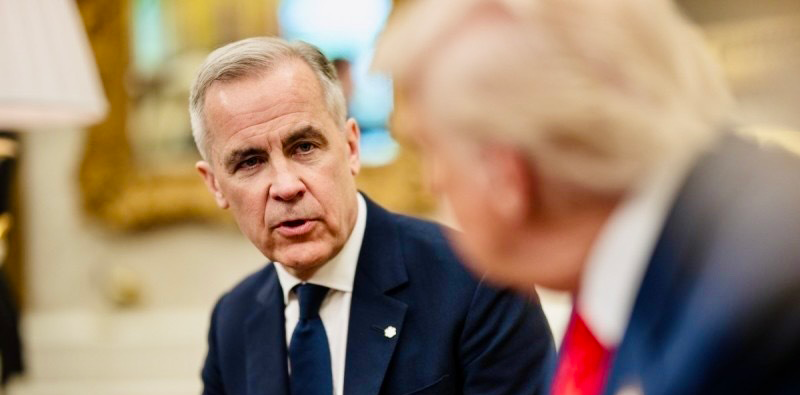Canada’s Trade Reset with the U.S. and the Defence Challenge


%4010x.png)
Digital Marketing & Communications Specialist
Samuel Associates Inc.
Prime Minister Mark Carney’s August 22 announcement may sound technical: "Canada will lift retaliatory tariffs on American goods covered by CUSMA, while Washington exempts Canadian exports from new U.S. duties," but it carries real weight. More than 85% of goods will now move tariff-free across the border, leaving Canadian exporters with the lowest average U.S. tariff rate of any partner. For most of the economy, that is a welcome reprieve.
Defence is the exception. Tariffs remain on steel, aluminium and automobiles—the building blocks of shipbuilding, aerospace, and land systems. For Canadian manufacturers, these duties mean higher costs and delivery risks on programs from naval vessels to fighter aircraft sustainment. Ottawa’s National Shipbuilding Strategy and other procurement projects will continue to feel the strain until a sector-specific deal is struck.
Carney framed the announcement in strategic terms: “Trade and security are two sides of the same coin.” That language is timely. Washington is advancing its Golden Dome missile-defence system, with a price tag of at least US$175 billion. Canada faces decisions not only about tariffs, but also about how to participate in the future of continental defence.
The risk is clear: without targeted relief, Canadian suppliers may lose ground to U.S. firms just as North America re-aligns its security architecture. The opportunity is equally clear: Canada can use the coming 2026 CUSMA review to secure trusted-corridor arrangements, program-level carve-outs, and deeper recognition of Canadian firms as part of the U.S. defence industrial base.
These decisions will not make themselves. For companies, trade, procurement, and government relations are now inseparable. That is why expertise matters. Samuel Associates, the only Canadian-owned defence advisory with offices in both Ottawa and Washington, helps clients navigate this intersection of trade and security, ensuring their voice is heard in both capitals.
Carney’s closing words are worth repeating: “We will not separate prosperity from preparedness.” For the defence industry, that is not a slogan—it is a policy reality. The time to act is now.
%4010x.png)
%4010x.png)

.png)


